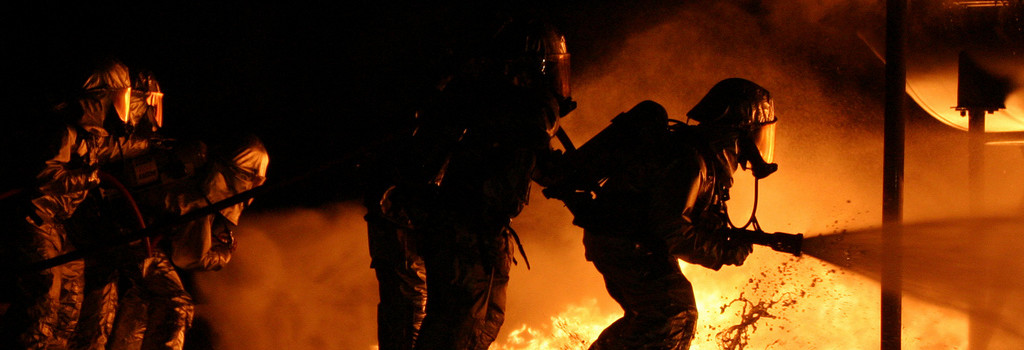NEWS FLASH – Attendance at an educational seminar resulted in a Fire Chief resigning from his position due to his fear that he would be held personally liable for actions taken on behalf of the fire department. Shocking! Shocking? It would appear that this chief had an irrational fear of litigation and we all like to think that we are immune from such litigation but a recent web search on the topic reveals that fire chiefs should be aware of the potential for litigation involving them as a named defendant. So let’s divide this into two sections.
The first is your actual liabilities. Some Fire Chiefs pull the trigger on themselves. Examples are theft from the department (numerous examples here), sexual harassment and sexual assault where the Chief is the antagonist; breach of fiduciary duty; failure to comply with state and federal safety standards; failure to abide by the NFPA standards (see Alan Baird in New York convicted in a firefighter death during a training exercise violating NFPA 1403); willful failure to enforce regulations; willful failure to provide services (see Fire chief loses motion to dismiss in $6 million suit over death of pregnant woman denied ambulance service (Re. Pettee v. Hulett, U.S. Dist. Ct. (N.D. Ill. 1975)). Also listed in litigation against the Chief is a failure to provide a safe working environment; a working environment free from discrimination and harassment or to respond to complaints of such behavior. There are many more examples but in the interest of your time and space let’s move on to the good part.
Then let’s look at your actual immunities. You have a qualified immunity against litigation related to the nature of your job as a public service governmental employee. This protection evaporates in willful or wanton conduct or gross negligence. You have immunity against negligent conduct if you are administering under a discretionary duty as opposed to a ministerial duty. Now you are asking what the difference is. A discretionary duty is defined as “one requiring the exercise of judgment in its performance, in contrast to a ministerial duty, which is one where nothing is left to discretion–a simple and definite duty, imposed by law, and arising under conditions admitted or proved to exist.
Another way to describe this is: discretionary acts are those where an individual official has been given some power to decide what action to take; whereas ministerial actions are those where “the law prescribes and defines the duty to be performed with such precision and certainty as to leave nothing to the exercise of discretion or judgment.” Fire Chiefs are often protected by official immunity if their decisions or actions cause harm but meet certain criteria, including that the duty was “discretionary” and not “ministerial.” These determinations are made on a case by case basis.
Usually Fire Chiefs are sued when an action or decision they make injures a person or their property or violates some civil right such as freedom of speech or right to due process. Remember, these actions, if not willful, wanton or grossly negligent or the Fire Chief is the perpetrator of egregious actions comes immunities that protect them if their actions or decisions meet these aforementioned criteria. Also remember that a lawsuit against you as the fire chief in your official capacity as a public official is considered a suit against your governmental entity as well. These suits are unlikely to lead to personal liability on your part.
Common causes of action against fire chiefs and their elected or appointed bosses include torts, Section 1983 claims and other actions that allege a violation of a property or civil right. 42 U.S.C. § 1983 is a federal law that gives individuals the right to sue the government when the government violates some constitutional right.
Ok, now that we have stirred the mud a little bit, what can you do to prevent lawsuits against you and your department? Quite simply do the right thing at the right time; make the right decisions based on the best interest of your firefighters safety and community; understand the law and if in doubt consult with your departments legal counsel; do not harm your reputation by stealing or engaging in unethical conduct; have a high moral and ethical standard and finally do the right thing and do not tolerate wrongdoing by members of your department. Yes you may be sued, but if you can sleep at night and you are not developing an ulcer, you are probably doing the right thing.
JOHN K. MURPHY JD, MS. PA-C, EFO, Deputy Fire Chief (Ret), has been a member of the career fire service since 1974, beginning his career as a firefighter & paramedic and retiring in 2007 as a deputy fire chief and chief training officer. He is a licensed attorney in Washington State since 2002 and in New York since 2012. Mr. Murphy consults with fire departments and other public and private entities on operational risk management, response litigation, employment policy and practices liability, personal management, labor contracts, internal investigations and discipline, and personal injury litigation. He serves as an expert witness involving fire department litigation and has been involved in numerous cases across the country. He is a frequent legal contributor to Fire Engineering Magazine, participant in Fire Service Court Blog Radio and a national speaker on fire service legal issues. For more information please contact me at 206-940-6502 or at john@murphylawgroup.org

